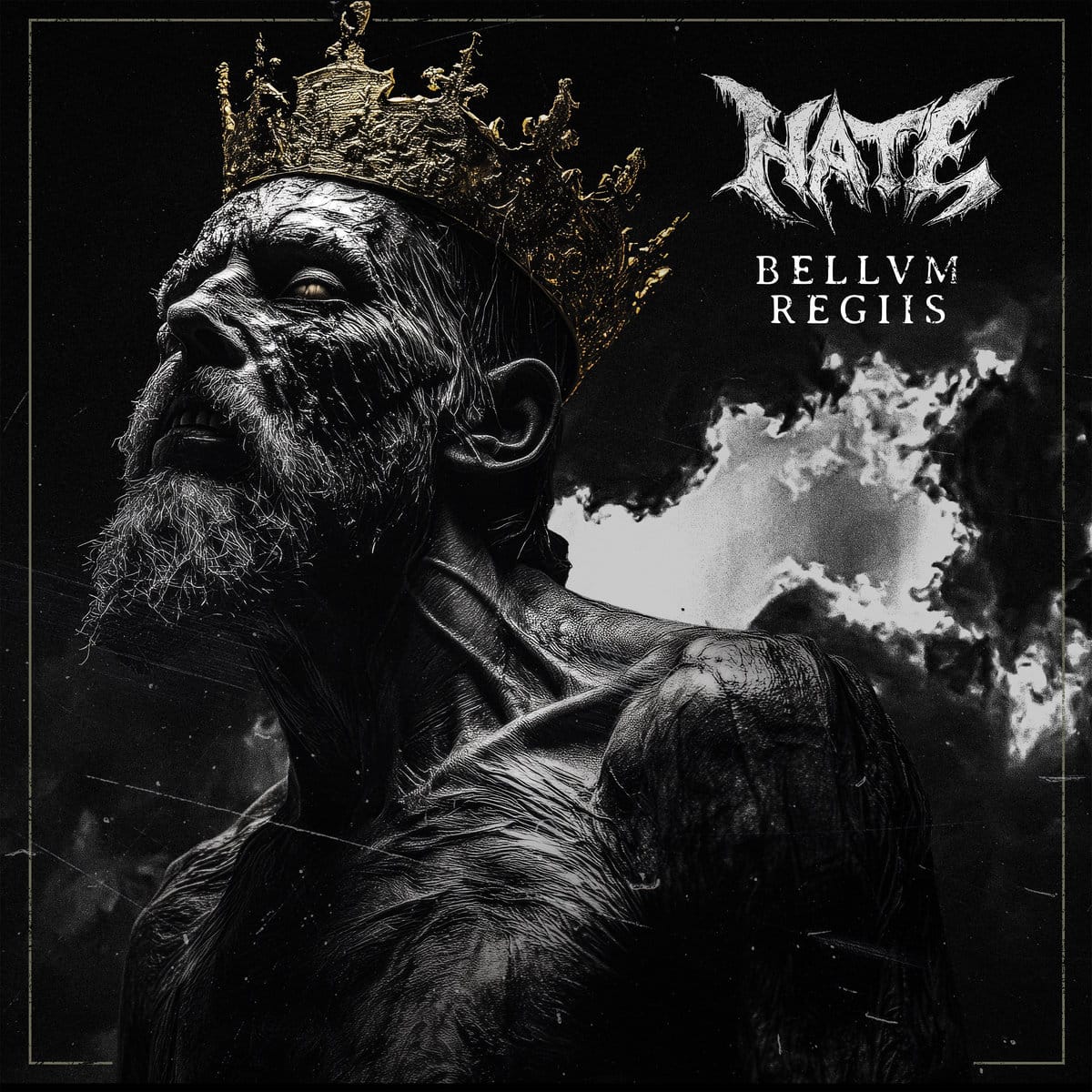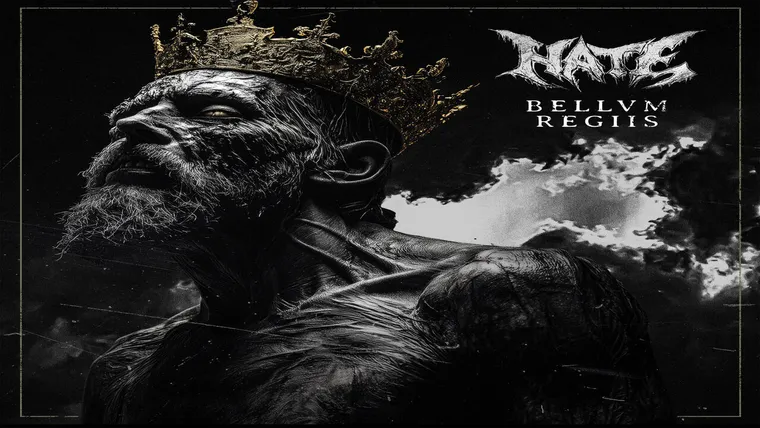
Released on May 2, 2025, Bellum Regiis marks the thirteenth studio offering from Polish blackened death metal stalwarts Hate—and it might be their most focused and thematically cohesive work to date. Grounded in Slavic mythology and the weight of metaphysical war, this album doesn't aim to reinvent the band’s identity but instead forges it deeper into cold steel and sacred fire. It’s a record where aggression becomes ritual and structure becomes sacrament.
Where Rugia explored rawer territory and Auric Gates of Veles delved into esoteric mysticism, Bellum Regiis feels sharpened—deliberate, theatrical, and refined. It’s a war march to forgotten gods, a hymn to divine wrath, and a testament to Hate’s ability to evolve without compromise.
Gods of War and Rituals of Fire: Themes of Blood and Spirit
The album opens with “Bellum Regiis,” a brief but foreboding intro that lays a ceremonial foundation—drenched in atmosphere, distant percussion, and low droning tones that sound like the summoning of an ancient force. It doesn’t explode—it rises, gradually, as if something terrible is awakening beneath the earth.
Then “Iphigenia” hits, and it’s all fire. From the first crushing riff, it becomes clear: Hate has not mellowed with age. Their signature blend of blackened tremolo riffs, guttural growls, and militaristic drumming remains intact, but the execution is leaner, more precise. The track blends fury with control—an opening salvo that sets the tone for the entire album.
“The Vanguard” and “A Ghost of Lost Delight” continue the charge, each track offering a balance of speed and ritualistic weight. “A Ghost of Lost Delight” slows the tempo, opting instead for atmosphere and shadow. There’s an almost melancholic quality beneath its churning rhythms—a haunting elegance that makes it one of the album’s most immersive cuts.
Thematically, Bellum Regiis revolves around mythological and philosophical explorations of war—not just physical combat, but the spiritual and ancestral conflicts that define civilizations and destroy them. Lyrically, ATF Sinner channels both the voice of a war-priest and a philosophical skeptic, walking a line between ritualism and nihilism.
The Art of Controlled Chaos
The album’s second act deepens both the mythology and the tension. “Rite of Triglav,” named after the three-headed Slavic god, is mid-paced and methodical, layered with intricate guitar work that feels more meditative than aggressive. It’s a centerpiece of the album—slow-burning but not sluggish, its atmosphere dense with reverence and rage.
“Perun Rising” reintroduces velocity, echoing the thunder god's wrath with frantic drumming and blinding tremolo lines. Yet even in its speed, the song remains tight and organized—chaos under control. That’s the true hallmark of Bellum Regiis: every moment of fury is meticulously sculpted, every note placed with intent.
“Alfa Inferi, Goddess of War” is perhaps the album’s most theatrical moment. The track rises and falls with almost cinematic precision, blending chanting vocal lines with dissonant harmonies. The dynamics here are outstanding—shifting from relentless force to restrained menace and back again.
“Prophet of Arkhen” is another standout, its riffs twisting like serpents beneath ATF Sinner’s commanding vocals. Lyrically, it conjures images of ancient seers and corrupted wisdom—tying together the album’s overarching narrative of spiritual warfare and ancestral trauma.
Closing track “Ageless Harp of Devilry” is a fitting finale. Rather than ending with pure aggression, Hate leaves us in a state of uneasy reflection. It’s slower, more melodic, and filled with a sense of spiritual fatigue. The final notes feel less like an exclamation point and more like a funeral march—a lingering echo of something eternal.
Production and Presence: Craft Over Chaos
Recorded at Hertz Studio in Poland and produced by the Wiesławski brothers, Bellum Regiis benefits from a sonic clarity that never robs the music of its rawness. The production is crisp without sounding clinical—every instrument has its space, and the mix allows the riffs and blast beats to hit with precision rather than simply pummel.
Nar-Sil’s drumming is a highlight throughout, as is Domin’s relentless guitar work. The interplay between technicality and mood is finely tuned—every tremolo run, every blast, every vocal incantation feels like part of a larger whole. This isn’t just a collection of songs—it’s a cohesive, guided ritual.
The album’s visual aesthetic, featuring mythic figures shrouded in war-torn regality, matches the sonic and lyrical themes perfectly. It's another reminder that Hate isn’t just playing music—they’re constructing a complete world, and you're meant to walk through it.
Final Verdict: 8.5/10
Bellum Regiis is a refined act of aggression. It’s not the most brutal or experimental album in Hate’s discography, but it may be the most focused and conceptually unified. It doesn’t try to dazzle with complexity or overreach with experimentation. Instead, it digs deep into its central themes—war, myth, sacrifice—and carves them into stone.
For longtime fans, this is a powerful reaffirmation of what Hate does best. For newcomers, it’s an ideal entry point into their disciplined and devastating sound. What Bellum Regiis lacks in surprise, it makes up for in conviction, atmosphere, and clarity of vision.
Standout Tracks:
- Iphigenia
- A Ghost of Lost Delight
- Rite of Triglav
- Alfa Inferi, Goddess of War
- Ageless Harp of Devilry
Bellum Regiis is more than just a metal album—it's a sermon delivered through fire and fury, steeped in blood, memory, and divine wrath. Hate isn’t reinventing itself—it’s perfecting its ritual.

